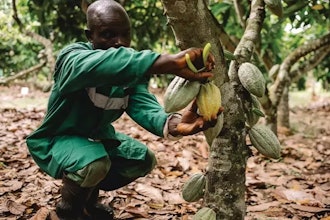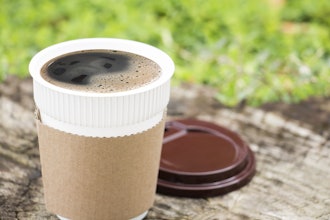NEW YORK (AP) — What if cauliflower got the same type of marketing firepower as candy bars and potato chips?
A campaign being launched Thursday plans to put that premise to the test by enlisting celebrities including actress Jessica Alba and Golden State Warriors Point Guard Stephen Curry to shill for fruits and vegetables.
The campaign will be announced by the Partnership for a Healthier America, which works with private companies and was created in conjunction with first lady Michelle Obama's Let's Move! initiative to get families to eat better and exercise. The push is being called "FNV," which is intended to be a hipper way to refer to "fruits and vegetables."
"We were inspired by the big brands and, can we do what they're able to do?" said Lawrence Soler, CEO of the Partnership for a Healthier America.
To start, the campaign will primarily be on social media networks like Twitter, where short videos featuring Alba and NFL quarterbacks Colin Kaepernick and Cam Newton will be posted. Additional videos will be released in coming days starring Curry, New York Giant Victor Cruz, actress Kristen Bell and others.
To give a hint of what's to come, a teaser video for the broader campaign will also be posted on FNV's website Thursday. The spot features stars with fruits and vegetables and is set to catchy music, with the words "PREPARE TO BE MARKETED TO" flashing on the screen near the end. Around spring, a full marketing push including TV and print ads is slated to hit two markets — Fresno, California, and Hampton Roads, Virginia.
Over time, Soler said the idea is to expand the campaign more broadly, although plans haven't been pinned down.
The campaign for FNV was created by the ad agency Victors & Spoils, which lists clients including Coca-Cola and General Mills on its website. The agency got involved after being asked to cook up a similar campaign for broccoli in 2013 for a New York Times story by Michael Moss, author of "Salt, Sugar Fat: How the Food Giants Hooked Us."
Andrew Nathan, chief marketing officer for Victors & Spoils, which is based in Boulder, Colorado, and has 49 employees, noted that fruits and vegetables are already attractive subjects with vibrant colors and interesting flavors. The only thing they lack is the "marketing pixie dust" that makes packagedfoods so irresistible, he said.
"Obviously, our inspiration for all this was behaving like a big, iconic brand," Nathan said, citing Nike and Apple as examples.
Among those providing financial and other support for FNV are Bolthouse Farms, which makes premium juices and bagged carrots and is owned by Campbell Soup, and the Produce Marketing Association, a trade group whose members include Sunkist, Chiquita, Dole, Wal-Mart and Chick-fil-A. Other supporters include the Robert Wood Johnson Foundation and Alba's Honest Company, which makes baby and home products.
Without providing details, the Partnership for a Healthier America said FNV is already a "multimillion-dollar" campaign and will continue raising funds. Still, it's up against the considerable resources of bigfood marketers.
For the first nine months of last year, for example, McDonald's Corp. spent $587.6 million on TV advertising in the U.S. alone, according to Kantar Media. Coca-Cola Co. spent $265.2 million.
Michael Jacobson, executive director of the Center for Science in the Public Interest in Washington, D.C., said an advertising campaign for fruits and vegetables could be powerful in influencing eating decisions, but that its effectiveness would depend on how much support it gets and how persistent it is.
"A lot of money for one day won't do anything," he said.
In the past, Jacobson noted that the Center for Science in the Public Interest ran a campaign in targeted markets encouraging people to pick low-fat or skim milk instead of regular. The push for fruits and vegetables will be far tougher, he said, because it's trying to convince people to make an entirely different choice — an apple, say, instead of a bag of Fritos.






















